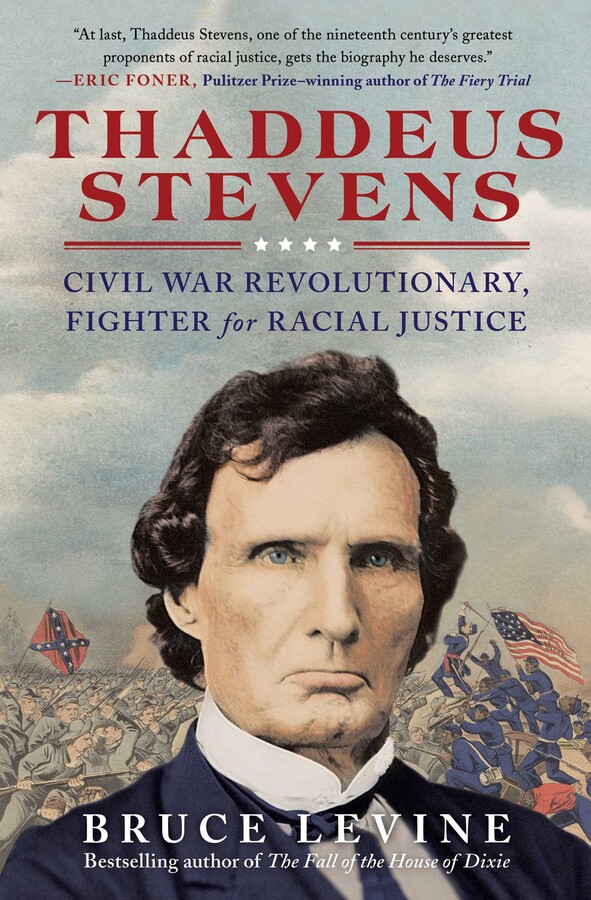Impressive as Stevens’s positions and predictions from the 1850s are, it would be entirely possible to write a book about the run-up to the Civil War that never mentions him. Indeed, Levine himself has done so, in the 1992 edition of Half Slave and Half Free, where his name comes up only in passing. The same is far from true of the war itself, still less Reconstruction. In spurring Lincoln and other Republican moderates to move more aggressively to abolish slavery, stamp out the rebellion, and, he hoped, prevent either from rising again, Stevens made his name as one of the most consequential radicals in American history.
The South’s move to secede after the 1860 election hardly surprised Stevens. Who could blame the slaveowners, he noted, given that the threat had so often succeeded in the past in getting them what they wanted? What was new was the insistence in much of the North that the fundamental plank of the Republican Party’s platform—banning slavery in the western territories—shouldn’t be bargained away, that there should be no more slavery-serving compromises. Unlike, say, William Seward, Stevens refused to consider any deal to avert secession. He opposed the Lincoln-backed Corwin Amendment, which would have offered ironclad constitutional protection to slavery in the states where it already existed—even though he thought it redundant. “Rather than show repentance for the election of Mr. Lincoln,” Stevens said, “I would see this Government crumble into a thousand atoms.”
Yet he also condemned those who favored letting the South go as guilty of “moral treason.” He wanted to fight to keep the Union together and use that fight to dismantle the institution that had caused the conflict in the first place. Stevens was one of the first to see the looming war as an opportunity. The Constitution had been ratified at a moment of Northern weakness; now that the sectional scales had shifted, the time was ripe for repealing its “odious” compromises. “If this Union should be dissolved,” he insisted, “if it should be torn to pieces by rebels, our next United States will contain no foot of ground on which a slave can tread, no breath of air which a slave can breathe.”
Stevens was sixty-nine years old when the Civil War began—some thirty years past the then-average U.S. life expectancy—but a fellow congressman noted that the fight “seemed to rejuvenate him and inspire him with superhuman strength.” Levine shows us a surprisingly flexible war-time Stevens, adapting to circumstance, constantly checking his priors: “He proved unusually able to grasp the nature of a given historical moment, to perceive that moment’s implicit logic, to follow that logic to its conclusions, and to fight with all the considerable energy and skill at his command for the measures to which those conclusions pointed him, no matter how unprecedented or extreme they might appear.” Still, because he worried—rightly, it turned out—that the job would be left half-done, his “self-assurance and self-confidence” in the war years was matched, Levine writes, by “impatience and frustration.” Thus the intensity, the occasional nastiness, invoked by his enemies and analyzed by his biographers; thus Tommy Lee Jones’ superbly lilting snarl.
